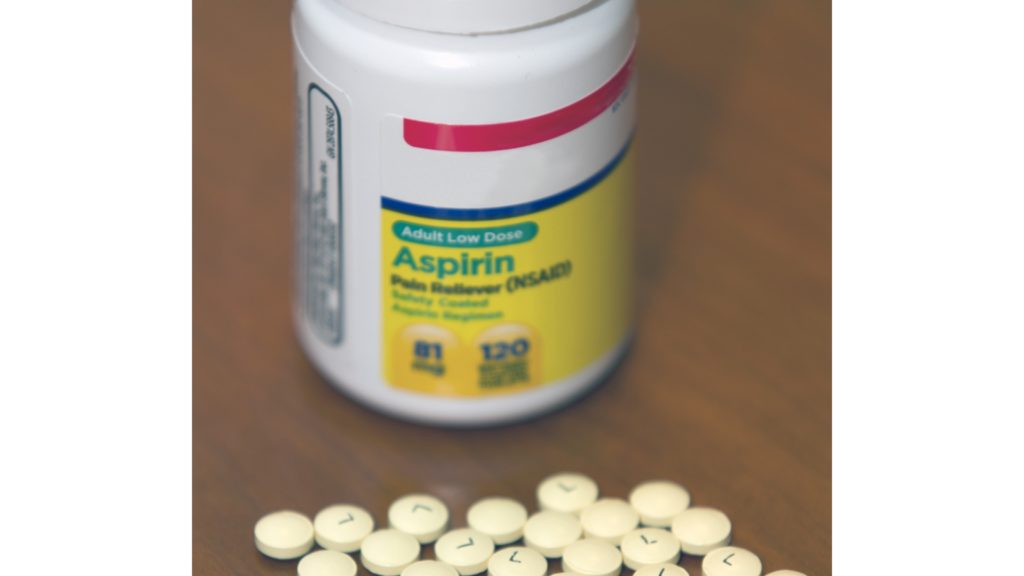[ad_1]
The following statement reflects the views of the American Heart Association/American Stroke Association.
According to the Association’s volunteer President Donald M. Lloyd-Jones, M.D., Sc.M., FAHA, “If you are already taking low-dose aspirin because you have had a heart attack, stroke or stenting or you have a history of AFib, continue to take it as directed by your physician; this new guidance about low-dose aspirin does not apply to your situation. Do not stop taking aspirin without first talking with your doctor.
“The new guidance revising the recommendations on the use of low-dose aspirin strictly applies to adults who have not had a cardiovascular event or any heart disease diagnosis: low-dose aspirin is not appropriate to prevent a first heart attack or stroke in most people. Due to the blood-thinning effects of aspirin, research continues to indicate that for most adults the risk of bleeding may be greater than the number of heart attacks or strokes actually prevented.
“We continue to urge clinicians to be extremely selective when prescribing aspirin for adults without known cardiovascular disease. For example, people with higher risk for gastric or intracerebral bleeding should not take aspirin to prevent a CV event. Aspirin should be limited to only those adults at the highest risk for cardiovascular disease due to the presence and severity of other risk factors, such as smoking, hypertension, Type 2 diabetes, high cholesterol or significant family history, who also have a very low risk of bleeding. Some recent evidence also indicates some people with higher coronary calcium scores, >100 units, indicating higher plaque burden and risk, may also benefit from aspirin therapy if they have no history of prior bleeding.”
Lloyd-Jones, also the chair of the department of preventive medicine and the Eileen M. Foell Professor of Heart Research and professor of preventive medicine, medicine and pediatrics at Northwestern University’s Feinberg School of Medicine in Chicago, stressed the importance of healthy choices for primary prevention of cardiovascular disease, “Various research studies over the past two decades indicate more than 80% of all cardiovascular events may be prevented by healthy lifestyle changes and management of known risk factors (like high blood pressure and adverse cholesterol levels) with medication when needed. Eating healthy foods and beverages, regular physical activity and not smoking are key. The scientific evidence continues to confirm healthy lifestyle habits and effectively managing blood pressure and cholesterol are the top ways to prevent a first heart attack or stroke, not low-dose aspirin. The new USPSTF guidance now aligns with American Heart Association’s 2019 primary prevention guideline. Consult with your doctor and health care team before making any changes in your medications.”
Additional Resources:
The Association receives funding primarily from individuals. Foundations and corporations (including pharmaceutical, device manufacturers and other companies) also make donations and fund specific Association programs and events. The Association has strict policies to prevent these relationships from influencing the science content. Revenues from pharmaceutical and biotech companies, device manufacturers and health insurance providers and the Association’s overall financial information are available here.
About the American Heart Association/American Stroke Association
The American Heart Association is a relentless force for a world of longer, healthier lives and includes the American Stroke Association. We are dedicated to ensuring equitable health in all communities. Through collaboration with numerous organizations, and powered by millions of volunteers, we fund innovative research, advocate for the public’s health and share lifesaving resources. The Dallas-based organization has been a leading source of health information for nearly a century. Connect with us on heart.org, Facebook, Twitter or by calling 1-800-AHA-USA1.
###
For Media Inquiries: 214-706-1173, AHACommunications@heart.org
Michelle Kirkwood: 703-457-7838, michelle.kirkwood@heart.org
Public Inquiries: 1-800-AHA-USA1 (242-8721)
heart.org and stroke.org
[ad_2]

